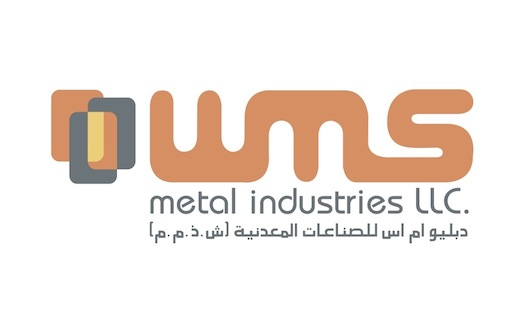Egyptian Brothers Innovate Recycling Technology in the Emirates

 Many residents in the UAE simply don’t
understand recycling, several recycling companies
have said over the past few years. In Abu
Dhabi, where the government’s Center for Waste Management
launched a door-to-door recycling service in 2011, the issue
can be as simple as residents simply
not understanding the difference between
green and black bins.
Many residents in the UAE simply don’t
understand recycling, several recycling companies
have said over the past few years. In Abu
Dhabi, where the government’s Center for Waste Management
launched a door-to-door recycling service in 2011, the issue
can be as simple as residents simply
not understanding the difference between
green and black bins.
This disconnect isn’t for lack of the UAE’s
emphasis on recycling; the country plans to
ban non-biodegradable plastic products
beginning next year, install a
green gas station in Dubai, and curtail the
over 30
million tonnes of waste its residents produce
every year. In Abu Dhabi alone, residents generate over 30,000
tonnes of waste a day, one study
found in 2012.
If one Dubai-based startup gets its wish,
recycling will now be as easy as pushing a button. WMS Metal Industries
has built a product that can be retrofitted onto existing
garbage chutes, allowing users to deposit recycling and have it
separated automatically by pushing a knob to indicate its type:
plastic, paper and cardboard, or metal. Once at the bottom of the
chute, recyclables are funneled into separate containers and kept
secure, to prevent theft.
“A typical 20-story building with 6 tenants per floor can make
about 7,000 AED a month,” says WMSMI founder Mohamed Nassar. That
computes to about 59 AED, or US $16, a month, per tenant.
Larger construction companies like Emaar could make “hundreds of
thousands of dirhams, if not millions a year, if they take a share
of the profits from the recycling,” says Nassar.
The company has already installed 9 devices at the Abu Dhabi
Central Market and several more at New York University in Abu
Dhabi, and is now looking into implementing a broader recycling
program in Sharjah, and Dubai, where the expansion of the city’s
“My City, My Environment” door-to-door recycling service was
recently put on hold.
While local governments may be supporting recycling on the whole, there’s not enough enforcement to make it a widespread phenomenon, says Nassar. “Incentive can be either a stick or a carrot. Either laws force you to recycle, or you create a benefit. Most projects undertaken here, because of the lack of legislation, are driven by the carrot; this waste can be sold off as raw material.” (Another carrot might be adding emotional feedback; one group of students at UAE University found that adding a smiley face to recycling bins also increases use).
Yet when it comes to pioneering a recycling
program in the Middle East in general, he says, the UAE is the
place to be. “Engagement with sustainable construction in the UAE
is far ahead of any other nation in the Arab region. We're fairly
confident that partnering with one of the three larger emirates
will finally allow us to really take off.”
Innovation in a Time of Crisis
Nassar and his brother, Mostafa, are both
originally from Egypt, but have grown up entirely in the Emirates.
In 2007, when construction in the UAE was booming, Mohamed launched
WMSMI to focus on an underserved niche: manufacturing and
installing garbage chutes (without recycling capability). By
serving both residential and corporate projects, he was able to
ride the wave of expansion transforming Dubai.
When the financial crisis hit, however, he realised the company
would have to diversify its products to survive. “Looking beyond
the Dubai horizon served us well,” he admits. Beginning to build
stainless steel segments for construction allowed the company to
continue growing. In September 2011, when Dubai SME opened, he
decided that it was time to focus on new growth. “I set our sights
beyond mere survival, and asked my brother Mostafa to return from
Canada. He joined us with the mandate of setting up this green
initiative.”
Since then, the company has ranked 28th in the Dubai SME 100, and
its growth earned it 30th place in the 2012 Arabia500 rankings for
the UAE. Rankings don’t mean that the ecosystem is where it should
be, however. “It's been disheartening to see technology imported
from abroad, with no innovation occurring in the UAE,” says Nassar.
“Last year, there were 320 patents filed in the UAE, while 6,000
were filed in India.
He and his brother hope to spur innovation, and,
eventually, to return to Egypt, where they’ve never lived. “The
grand master plan is to go back to Egypt some day, and the sooner
the better,” says Nassar, hinting that the company is working on a
contract there.
Yet in Egypt, where trash separation is undertaken by a class of people known as “zabbaleen,” a recycling chute will likely not find traction. “The separator system is not going to take us back to Egypt,” Nassar admits. A return to Egypt will likely mean a return to old-fashioned chute construction. “For it to make sense, first, buildings need to have chutes in them.”


